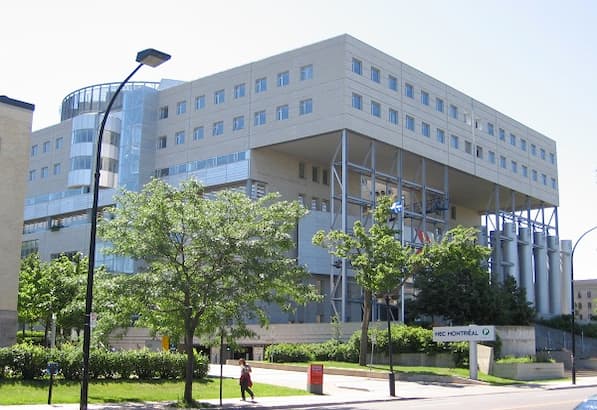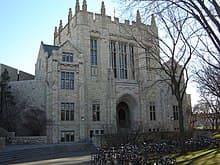Are you someone who is looking to boost your career prospects in the shortest time possible? Then a 1-year MBA program in Canada might just be what you need.
But, what makes a 1-year MBA program in Canada unique? Apart from the shorter duration, these programs offer a concentrated and intense curriculum that covers all essential aspects of business management. Plus, they are designed for professionals who are looking to accelerate their career growth or pivot to a new career. Additionally, many of these programs offer some of the cheapest MBA options in Canada, making them an affordable choice for those seeking a high-quality education.
In this article, we’ll dive into the world of 1-year MBA programs in Canada, exploring the benefits of pursuing an MBA in Canada, the top universities offering 1-year MBA programs, the admission requirements, and the career prospects after completing the program. So, fasten your seatbelts and get ready to embark on a journey that could transform your career!
Top 7 Business Universities for 1 Year MBA in Canada
Here are some of the best universities in Canada offering 1 year MBA programs in Canada, most of them offering MBA programs in Ontario, Canada. Among all these, we found Wilfrid Laurier University as one of the most affordable MBA colleges in Canada. These universities are among the Top MBA Colleges in Canada, providing excellent value for those seeking a high-quality, intensive business education.
-
PictureUniversity NameCoursesUniversity Details
-
 One year Executive MBAPublic University
One year Executive MBAPublic University
Estd 1827
QS Rank – 25
Fees: CAD 124,030
Duration: 13 months
Intake: Sep
Placement: 85% -
 Executive MBA (EMBA)Public College
Executive MBA (EMBA)Public College
Estd 1821
QS Rank – 27
Fees: CAD 94,000
Duration: 15 months
Intake: Sep
Placement: 90% -
 Full- time MBAPublic College
Full- time MBAPublic College
Estd 1907
QS Rank – 34
Fees: CAD 62,600
Duration: 1 year
Intake: Aug
Placement: 97% -
 Full- time MBA
Full- time MBA
Accelerated MBAPublic University
Estd 1878
QS Rank – 214
Fees: $89,000 Accelerated)- $129,750 (Full- time)
Duration: 12- 14 months
Intake: Nov
Placement: 89% -
 Full- time MBAPublic University
Full- time MBAPublic University
Estd 1841
QS Rank – 244
Fees: $110,000
Duration: 12 months
Intake: Jan
Placement: 90% -
 Global 1 year MBA
Global 1 year MBA
Finance MBAPublic University
Estd 1907
QS Rank – 345
Fees: $45,455
Duration: 1 year
Intake: Mar
Placement:82% -
 Full- time MBAPublic University
Full- time MBAPublic University
Estd 1911
QS Rank – 651-700
Fees: $68,188
Duration: 12- 16 months
Intake: Sep
Placement: 95%
Why consider 1-Year MBA Programs In Canada?
Is it worth pursuing a 1 year MBA in Canada? Here are some of the best reasons on why to consider a 1 year MBA program in Canada.
- Faster Career Growth: A 1-year MBA program can help you acquire the necessary skills and knowledge to accelerate your career growth. You can expect to learn about various aspects of business management, including marketing, finance, strategy, and leadership, that can make you a valuable asset to any organization.
- Cost-Effective: A 1-year MBA program is typically more cost-effective than a 2-year program since you save on tuition fees, accommodation, and other living expenses. Additionally, you’ll be able to start earning sooner, giving you a quicker return on your investment.
- International Exposure: Canada is a global hub for business, and pursuing an MBA in Canada can give you international exposure that can open up a world of opportunities. You’ll be exposed to a diverse culture, work with people from different backgrounds and develop a global mindset that can set you apart in the job market.
- Networking Opportunities: A 1-year MBA program can offer you ample networking opportunities, including alumni events, guest lectures, and industry meetups. These connections can be invaluable in helping you secure internships, job offers, and future business partnerships.
- Flexibility: One-year MBA programs are designed for professionals who want to gain an MBA without putting their careers on hold. You can choose from a variety of specializations and delivery formats, including online, part-time, and executive MBA programs that offer flexibility to suit your schedule.
Who Should Opt for a One year MBA in Canada?
Consider a 1-year MBA in Canada if you:
- Want a cost-effective MBA without a financial strain.
- Thrive in an accelerated learning pace.
- Have ample professional experience to compensate for the lack of an internship.
- Possess clear career aspirations and industry preferences.
- Seek a quick career switch without the commitment of a full-time program.
- Aim for rapid career advancement through a focused curriculum.
Eligibility Criteria for 1 Year MBA in Canada
In case you are wondering what is the eligibility criteria or the qualification that one might require to get into a 1 year MBA program in Canada.
- Undergraduate Degree: To be eligible for a 1-year MBA program in Canada, you must hold an undergraduate degree from a recognized institution. A strong academic record can improve your chances of being accepted into a top MBA program.
- GMAT Score: Most MBA programs in Canada require applicants to take the Graduate Management Admission Test (GMAT). A high GMAT score can increase your chances of being accepted into a top MBA program. Some programs may accept the Graduate Record Examination (GRE) score as an alternative.
- Work Experience: Many 1-year MBA programs in Canada require applicants to have a minimum of two to five years of work experience. This is because MBA programs are designed for working professionals who are looking to advance their careers.
- Language Requirements: Most universities in Canada require international applicants to demonstrate proficiency in English. You may need to take the Test of English as a Foreign Language (TOEFL) or International English Language Testing System (IELTS) and achieve a minimum score to be eligible for admission.
- IELTS – 6.5 – 7.5
- TOEFL (iBT) – 100
- Passport and Visa: International students must hold a valid passport and obtain a study permit or student visa to study in Canada. You will need to provide proof of acceptance into an MBA program and demonstrate that you have the financial means to support yourself while studying in Canada.
Application Process and Eligibility Criteria
Admission Requirements
Admission requirements for 1-year MBA programs in Canada vary by university, but some common requirements include:
- A bachelor’s degree from an accredited institution
- A minimum GPA (usually between 3.0 and 3.5)
- GMAT or GRE scores (some programs may waive this requirement for applicants with extensive work experience or other qualifications)
- Work experience (usually at least 2-3 years)
- English language proficiency (for international students)
Application Deadline for 1 Year MBA in Canada
Application deadlines for 1-year MBA programs in Canada also vary by university and program. It is important to check the application deadline for each program you are interested in, as some programs have multiple deadlines throughout the year. Generally, application deadlines for 1-year MBA programs in Canada fall between November and February for the following academic year.
Required Documents
In addition to meeting the admission requirements, applicants must also submit a variety of documents to complete their application. Required documents typically include:
- Transcripts from all post-secondary institutions attended
- GMAT or GRE scores (if required)
- English language proficiency test scores (for international students)
- Resume/CV
- Personal statement or essay
- Letters of recommendation (usually 2-3)
1 Year MBA in Canada Fees 2026
Applicants are usually required to pay an application fee when applying to 1-year MBA programs in Canada. The fee varies by university and program, but is typically between CAD 100 and CAD 200. Some universities may offer fee waivers or reductions for applicants who demonstrate financial need or other qualifications. It is important to check the application fee for each program you are interested in before applying.
1 Year MBA In Canada Without GMAT
Several esteemed universities in Canada offer admission into their one-year MBA programs without requiring a GMAT score. Here is a list of universities that provide this option:
- Queen’s University
- McGill University
- Lakehead University
- York University
- Concordia University
- Wilfrid Laurier University
- HEC Montreal
- Thompson Rivers University
- University of Toronto
1 Year MBA In Canada Scholarships
| Name of Scholarships | Amount Granted (CAD) |
|---|---|
| Ontario Graduate Scholarship | 5,000 per session |
| Alberta Graduate Excellence Scholarship | 12,000 |
| Forte Fellowship | Varies |
| Ivey Admission Scholarships | 10,000 to 65,000 |
Also Checkout these Top 10 MBA scholarships in Canada for international students
Jobs After 1 Year MBA in Canada for Internation Students
Job Prospects and Industries
Graduates of 1-year MBA programs in Canada are well-equipped to pursue a wide range of career paths in various industries. Some of the most popular industries for MBA graduates include finance, consulting, marketing, healthcare, and technology. Graduates may also choose to start their own businesses or pursue careers in the public sector or non-profit organizations. Many MBA programs offer career services and resources to help students explore career options and connect with potential employers.
Average Salaries and Earning Potential
Salaries for MBA graduates in Canada vary widely depending on factors such as industry, job function, location, and experience. According to PayScale, the average salary for MBA graduates in Canada is approximately CAD 88,000 per year, with some earning as much as CAD 170,000 per year. Graduates with specialized skills or concentrations may earn higher salaries than those with general MBAs. Additionally, earning an MBA can lead to higher earning potential over time, as many graduates move into higher-level management positions.
Frequently Asked Questions
The average total cost for a Master of Business Administration (MBA) program for Canadian students ranges from CAD 20,592 to 22,249.
To qualify for permanent residency after studying in Canada, international students need to meet the following requirements: Successfully complete a two-year MBA program at a designated learning institution (DLI) in Canada. Hold a valid study permit. Complete the program within the last three years.
Some of the most sought-after MBA courses or specialization subjects include:
- MBA in General Management.
- MBA in Human Resource Management.
- MBA in Finance.
- MBA in Marketing.
- MBA in International Management.
In Canada, a 1-year MBA can help experienced professionals move up quickly in their careers, but it may not be as in-depth as a 2-year school. Think about your past and goals to make a choice
It depends on your ambitions! A one-year MBA is speedier and less expensive, while a two-year MBA provides more in-depth learning and networking opportunities
